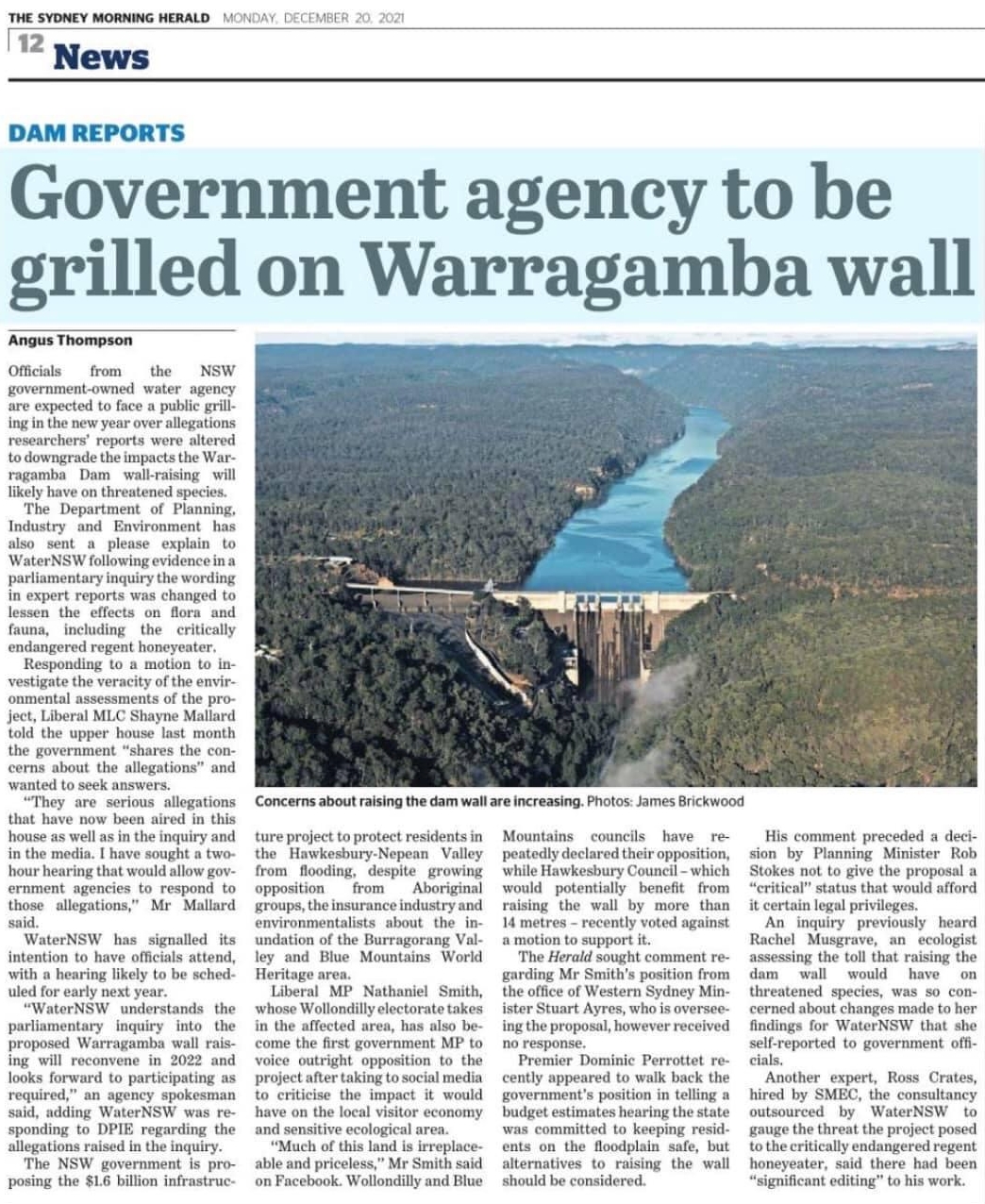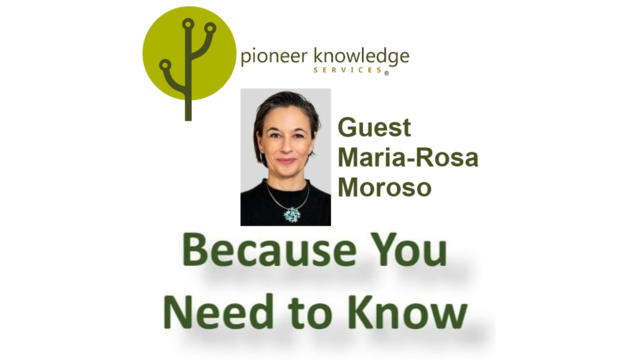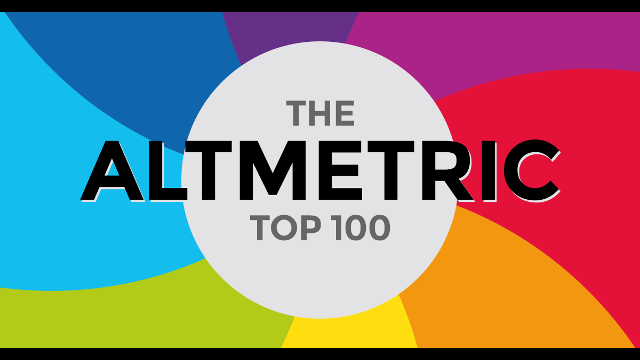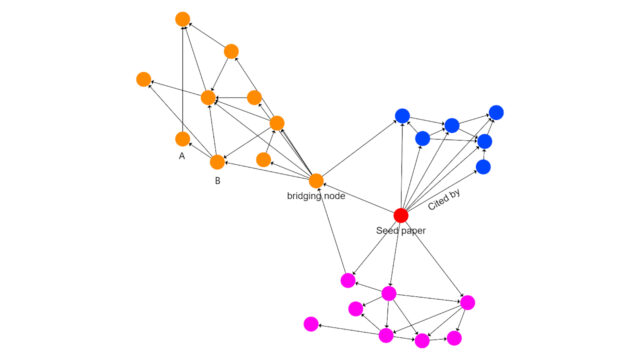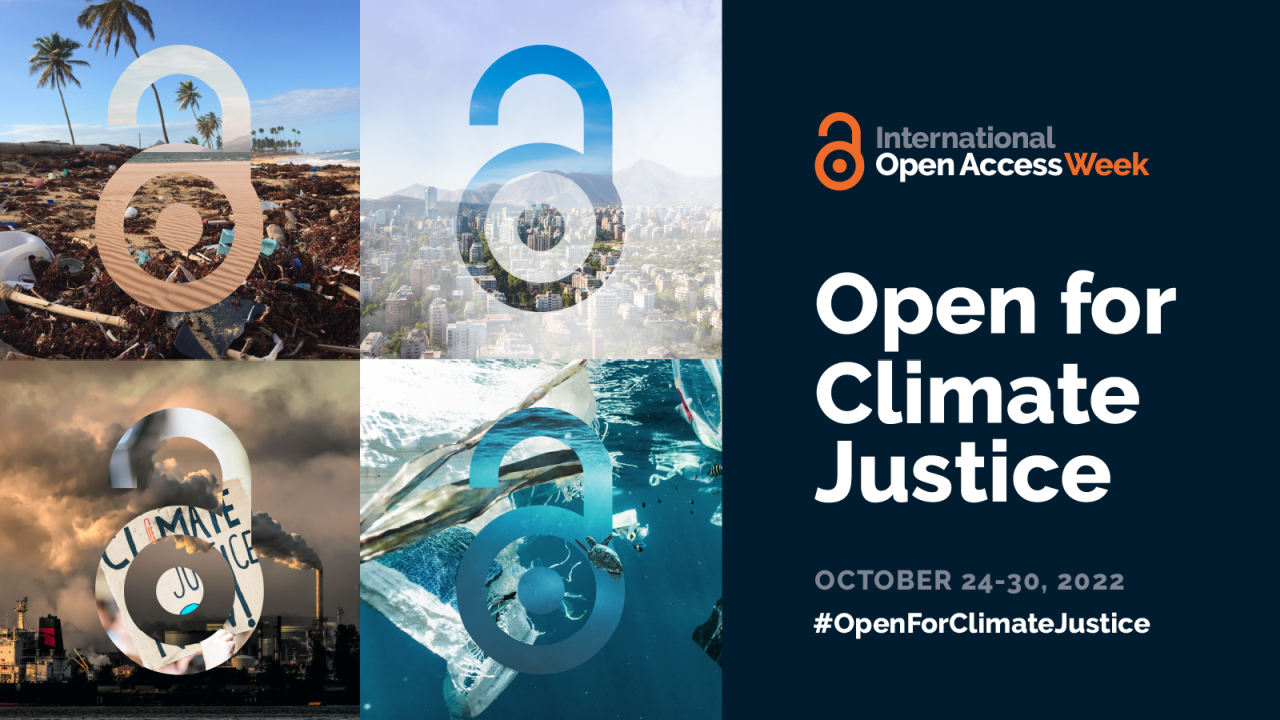
International Open Access Week 2022: Open for Climate Justice
The theme for International Open Access Week 2022, which runs from 24-30 October, is “Open for Climate Justice”:
This year’s theme seeks to encourage connection and collaboration among the climate movement and the international open community. Sharing knowledge is a human right, and tackling the climate crisis requires the rapid exchange of knowledge across geographic, economic, and disciplinary boundaries.
Information and resources in multiple languages can be found on the International Open Access Week website.
We’ve previously published a number of articles highlighting how the open sharing of research findings and local knowledge can benefit climate action, and also alerting that much more needs to be done to facilitate this knowledge sharing. These articles include:
- Open access to scholarly knowledge in the digital era (chapter 1.4): Can open scholarly practices redress injustices in knowledge-making?1
- What can we gain from open access to Australian research? Climate action for a start2
- Science publishing has opened up during the coronavirus pandemic. It won’t be easy to keep it that way3.
However, to achieve climate justice, we need to do more than just facilitate open access to climate knowledge. We also need to act on unjust climate-related knowledge suppression. For example, research shows that in Australia, which ranked last4 on climate action of the 193 countries examined in the U.N. Sustainable Development Report 2021, environmental science is routinely suppressed5. One of the most recent climate-related cases is the following6:
What can the KM community do to help?
To assist “Open for Climate Justice,” the international knowledge management (KM) community can actively facilitate and support open access KM research, the better use of local knowledge in decision-making, and actions to end unjust knowledge suppression.
Unfortunately, the KM community still has a long way to go in this regard. Some in the KM community are actively promoting and supporting open access, for example RealKM Magazine, which has a firm “always open” policy7, and the Knowledge Management for Development Journal, which is open access. However, as I’ve previously alerted, many KM researchers are continuing to fail to practice what KM preaches by hiding their research findings behind academic journal paywalls. Furthermore, the Journal of Knowledge Management, which is recognised as the leading KM journal8, is not open access.
One of the most profound examples of this KM community knowledge hiding is the recently published research paper “Knowledge hiding – a systematic review and research agenda,” which is itself hidden behind the Journal of Knowledge Management paywall!
Header image source: International Open Access Week, CC BY 4.0.
References and notes:
- Albornoz, D., Okune, A., and Chan, L. (2020). Can Open Scholarly Practices Redress Epistemic Injustice? In Eve, M. P., & Gray, J. (Eds.) Reassembling scholarly communications: Histories, infrastructures, and global politics of Open Access. MIT Press. ↩
- Montgomery, L., Neylon, C., & Huang, K. (2021, December 3). What can we gain from open access to Australian research? Climate action for a start. The Conversation. ↩
- Barbour, V. (2020, July 28). Science publishing has opened up during the coronavirus pandemic. It won’t be easy to keep it that way. The Conversation. ↩
- Cox, L. (2021, July 1). Australia ranks last for climate action among UN member countries. The Guardian. ↩
- Driscoll, D. A., Garrard, G. E., Kusmanoff, A. M., Dovers, S., Maron, M., Preece, N., … & Ritchie, E. G. (2021). Consequences of information suppression in ecological and conservation sciences. Conservation Letters, 14(1), e12757. ↩
- Thompson, A. (2021, December 20). Government agency to be grilled on Warragamba wall. The Sydney Morning Herald. ↩
- As discussed in section 3.3 of The RealKM Impact Story – August 2015 to March 2022. ↩
- Serenko, A. (2021). A structured literature review of scientometric research of the knowledge management discipline: a 2021 update. Journal of Knowledge Management, 25(8), 1889-1925. ↩
Also published on Medium.

